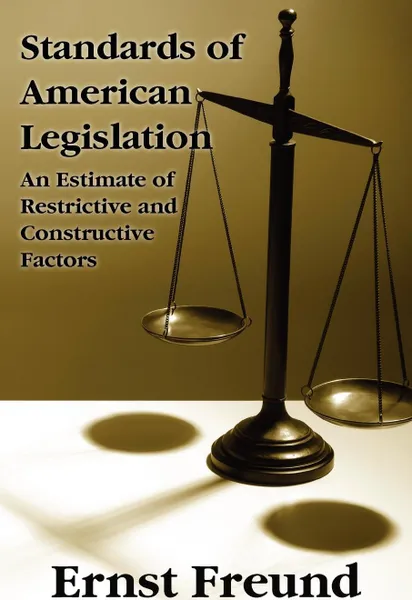Standards of American Legislation 12+
📒 "The Austin of the Jurisprudence of Administrative Law"This book originated as a series of lectures presented at Johns Hopkins in 1915. It proposes a method to supplement the established doctrine of constitutional law, which enforces legislative norms through negation and review, by a system of positive principles that would guide the making of statutes and give more definite meaning and content to the concept of due process. Highly regarded since its original publication in 1917 and the winner of Harvard Law School's Ames Prize in 1919, it went on to become a standard work. It was recommended, to cite two examples, in Roscoe Pound's Introduction to American Law (1919) and Arthur Vanderbilt's Studying Law (1945). A comment published at the end of Freund's career summarizes a general opinion: "The great quality which Ernst Freund brought to the study of administrative law was his capacity for analysis. He was the Austin of the jurisprudence of administrative law." -W.I.J., Law Quarterly Review 49 (1933): 588.Ernst Freund [1864-1932] was Professor of Jurisprudence and Public Law at the University of Chicago. He is widely considered to be responsible for the development of administrative law in the United States.
Мнения
